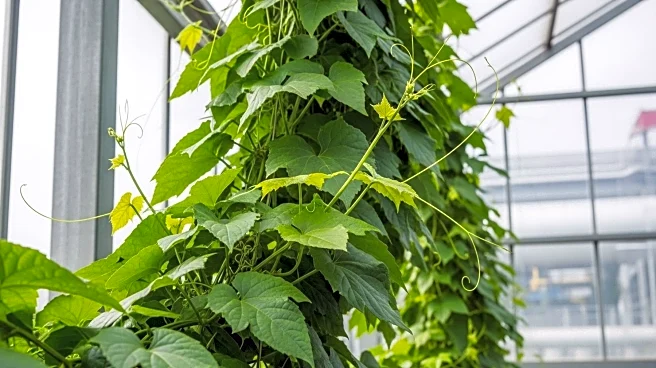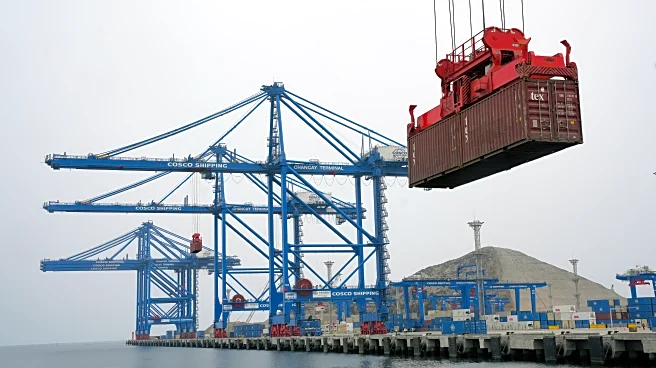What's Happening?
Nestlé and Kraft Heinz are taking significant steps to secure their supply chains amid climate change challenges. Nestlé is focusing on cocoa production, particularly in West Africa, where erratic weather patterns have affected yields. The company is implementing agroforestry systems to enhance drought resistance and diversify income sources for farmers. Additionally, Nestlé is empowering women and households through initiatives like village savings and loans, beekeeping, and guaranteed honey offtake. Meanwhile, Kraft Heinz is transforming its tomato sourcing practices to be more sustainable. The company is using cover cropping techniques to improve soil health and biodiversity, optimizing yields through refined farming practices, and integrating AI and automation for efficient irrigation and harvesting. Kraft Heinz is also developing proprietary tomato varieties to adapt to changing climate conditions.
Why It's Important?
These initiatives by Nestlé and Kraft Heinz are crucial as they address the growing impact of climate change on agriculture, which is vital for food security. By adopting sustainable practices, these companies are not only ensuring the resilience of their supply chains but also supporting farmers and communities affected by climate disruptions. The focus on agroforestry and regenerative agriculture contributes to environmental sustainability and long-term productivity. These efforts reflect a shift towards holistic sustainability programs, moving beyond traditional certification models. The integration of technology in agriculture by Kraft Heinz highlights the balance between innovation and human expertise, ensuring efficient and sustainable food production.
What's Next?
Nestlé and Kraft Heinz will continue to develop and implement climate-smart practices in their operations. Nestlé's upcoming Climate Smart Food broadcasts will further explore strategies to tackle climate challenges in the food industry. Kraft Heinz will likely expand its sustainable farming techniques and seed innovation efforts to enhance crop resilience. These companies may also engage with more partners and stakeholders to broaden the impact of their sustainability initiatives. The ongoing adaptation to climate change will require continuous innovation and collaboration within the industry.
Beyond the Headlines
The efforts by Nestlé and Kraft Heinz to secure their supply chains have broader implications for the food industry. These initiatives could set a precedent for other companies to adopt similar sustainable practices, potentially leading to industry-wide changes. The focus on empowering women and households reflects a growing recognition of the social dimensions of sustainability. Additionally, the integration of technology in agriculture raises questions about the future role of human expertise and the ethical considerations of automation. These developments may influence public policy and consumer expectations regarding sustainability and corporate responsibility.










